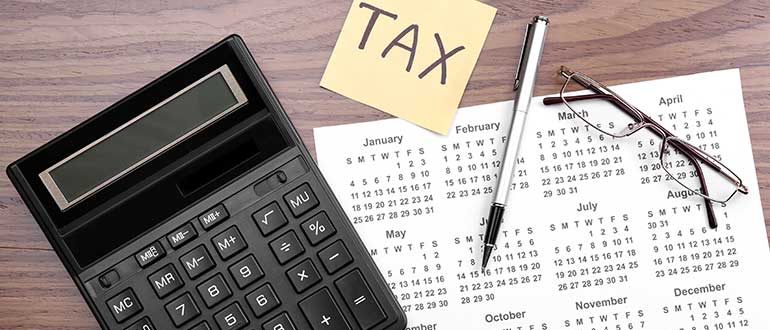
During tax season, keeping track of all the documents and forms you must file can be difficult. The IRS Collection Statute Expiration Date (CSED) is a document that can determine whether you owe additional taxes or if a debt has expired. In this guide, you will learn how to find your IRS CSED and why it’s vital for filing taxes.
What Is the IRS CSED?
This date limits the IRS’s ability to collect taxes from individuals. Understanding how the CSED works and how it affects taxpayers is essential. The CSED begins when an individual is assessed taxes or when the individual files a return with a tax liability.
The CSED is typically 10 years from the date of assessment or filing, depending on the circumstances. As time passes, the CSED will move closer to the present time. The CSED can also be affected by certain events, such as filing an amended return, requesting an extension of time to pay, or making a payment toward the tax liability.
How to Find Your IRS CSED
Knowing your CSED is critical to help you plan and pay your taxes on time. So, how can you find your IRS CSED? Here are the steps you need to take:
Step 1: Check your Tax Records
The first step to finding your CSED is to check your tax records. You should have received a notice from the IRS when you filed your taxes that has the CSED for that year. If you no longer have that notice, you can look up the CSED for that year on the IRS website.
Step 2: Contact the IRS
You must contact the IRS directly if you can’t find the CSED in your tax records. You can contact them by phone, mail, or online. They can help you find the CSED for the year in question.
Step 3: Calculate the CSED
Once you have the information from the IRS, you can calculate the CSED yourself. The IRS will provide you with the date when the taxes were due and when the taxes were paid. You can then subtract the date the taxes were due from when you paid them, giving you the CSED.
Step 4: Understand the Implications
It’s essential to understand the implications of the CSED. The IRS can only collect taxes up to the CSED. After that date, they can no longer collect taxes. If you are late in paying your taxes, the IRS won’t be able to collect those taxes after the CSED has passed.
Finding your IRS CSED is vital in ensuring you pay your taxes on time. The steps we discussed can help you find your CSED and understand its implications.
The Benefits of Knowing Your IRS CSED
Knowing the CSED can help you stay on the right side of the law when it comes to filing taxes and can help you maximize your tax deductions and credits. Here are three of the biggest benefits of knowing your IRS CSED:
1. Stay Out of Trouble
It helps you avoid potential issues with the IRS. The IRS is not shy about enforcing the tax code; if you do not comply with their regulations, you may be in hot water. Knowing the CSED will help you avoid potential legal issues and will help you keep your taxes in order.
2. Maximize Your Deductions and Credits
Knowing the CSED will help you maximize your deductions and credits. Many different deductions and credits are available to taxpayers. Understanding the CSED will help you determine which ones you qualify for. This can save you money on your taxes and help you get the most out of your filing.
3. Understand Your Tax Returns
Knowing the CSED can also help you understand the various forms and schedules you must fill out when filing your taxes. This knowledge can help you better understand and complete your tax returns and help you avoid any potential issues.
Knowing your IRS CSED can help you stay out of trouble, maximize your deductions and credits, and better understand your tax returns. This knowledge can help you save money and avoid costly mistakes. It is essential to take the time to understand the IRS Code of Statutes and Regulations and how it applies to you. Knowing your CSED will help you stay on top of your taxes and keep your finances in order.
To Sum Up
Find your IRS Collection Statute Expiration Date (CSED) is integral to managing your taxes effectively and avoiding problems with the IRS. The steps provided in this guide can assist you in locating your CSED and comprehending its significance.
Knowing your CSED may also help you claim the maximum possible tax deductions and credits, understand your tax returns better, and ultimately save you money. It’s vital to take the time to comprehend the IRS Code of Statutes and Regulations and how it applies to you to maintain your finances in order and prevent costly errors.
